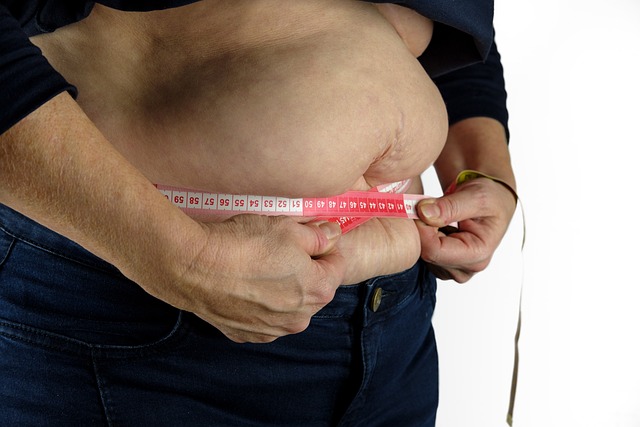Is The OMAD Diet Not Resulting In Weight Loss?

Intermittent fasting has been a popular trending topic for quite some time now. It’s not a hush-hush item anymore and people are actually getting results. But what if you’re one of the many individuals asking themselves, “Why am I not losing weight with intermittent fasting, more specifically the OMAD diet?”

Don’t Give Up
Maintaining focus can be challenging when intermittent fasting, especially with the One Meal a Day (OMAD) diet, where you fast for 23 hours and eat for only one hour per day. Even though the expectation is to shed pounds rapidly, some individuals struggle to achieve their desired results. To aid in weight loss, the following reasons can be helpful to keep in mind.
1. Sleep is important for the most optimal weight loss results.
- Increased appetite: Lack of sleep can cause an increase in the hormone ghrelin, which stimulates appetite, and a decrease in the hormone leptin, which suppresses appetite. This can lead to an increase in hunger and cravings for high-calorie foods.
- Slower metabolism: Sleep deprivation can also lead to a slower metabolism, which can make it harder to burn calories and lose weight.
- Less energy for exercise: When you’re sleep-deprived, you may feel too tired to exercise, which can reduce the number of calories you burn and slow down your weight loss progress.
- Increased stress: Lack of sleep can also increase stress levels, which can trigger the release of the hormone cortisol. High levels of cortisol can cause the body to store fat and make it harder to lose weight.
Not getting enough sleep can make it harder to lose weight by increasing appetite, slowing metabolism, reducing energy for exercise, and increasing stress levels.
Getting Enough Sleep Is An Important Part of Any Weight Loss

We naturally fast in our sleep as sleeping provides a chance for the body to naturally refresh itself. During sleep, the body undergoes a variety of restorative cycles such as repairing and rebuilding tissues, consolidating memories, and regulating hormones.
2. Not eating clean during non-fasting times.
Just because you’re eating one meal a day doesn’t give you a pass to eat whatever you want. Make sure a well-balanced meal is on the table with plenty of protein, healthy fats, and fiber.
- Overeating: It’s possible to consume too many calories even if you’re intermittent fasting. If you’re not eating clean during your eating periods, you may be consuming more calories than you realize, which can hinder weight loss progress.
- Eating processed foods: Many processed foods are high in calories, sugar, and unhealthy fats, and can lead to weight gain. If you’re not eating clean during your eating periods, you may be consuming more processed foods than whole foods, which can negatively impact your weight loss progress.
- Consuming too many carbohydrates: Carbohydrates are an important macronutrient, but consuming too many refined carbohydrates, such as white bread, pasta, and sugary foods, can lead to weight gain. If you’re not eating clean during your eating periods, you may be consuming too many refined carbohydrates, which can hinder weight loss progress.
- Consuming too much unhealthy fat: Consuming too much unhealthy fat, such as trans fats and saturated fats, can lead to weight gain. If you’re not eating clean during your eating periods, you may be consuming too much unhealthy fat, which can negatively
3. Not Drinking Enough Water.
Drinking water is essential for weight loss. Make sure you’re drinking plenty of water throughout the day.
HYDRATION IS IMPORTANT FOR WEIGHT LOSS.
Drink water, water, water, and Repeat! It’s essential to stay hydrated throughout the day, even if weight loss isn’t the ultimate goal. The general recommendation is to drink at least 8 glasses (64 ounces) of water per day, but your individual needs may vary based on your age, gender, activity level, and other factors.
Life-Long Tips For Hydration & Weight Loss:
(1) Drink water before meals
(2) Replace sugary drinks with water
(3) Stay hydrated during exercise
- Water can help reduce appetite: Drinking water before meals can help reduce appetite and calorie intake. In one study, participants who drank water before meals consumed fewer calories and lost more weight than those who didn’t.
- Water can help boost metabolism: Drinking water can temporarily increase your metabolism, helping you burn more calories. One study found that drinking 500 ml of water increased metabolic rate by 30% in both men and women.
- Water can help reduce water retention: Drinking plenty of water can help reduce water retention, which can cause bloating and make you feel heavier. This can make you appear slimmer and help you feel more comfortable in your clothes.
4. You’re Eating During Fasting Time
If you’re snacking during fasting time, it will definitely disrupt the fasting process and make it difficult to lose weight. Try not to work against yourself or break fast, you’ve got this!!
- Disrupts the fasting process: When you snack during fasting times, you are disrupting the fasting process, which can make it difficult to achieve the desired health benefits of fasting, such as improved insulin sensitivity and weight loss. Snacking during fasting periods can also lead to an increase in blood sugar and insulin levels, which can reduce the effectiveness of fasting.
- Increases calorie intake: Snacking during fasting periods can increase your calorie intake, which can make it harder to lose weight. Even small snacks can add up throughout the day, leading to a calorie surplus that can lead to weight gain.
- Triggers hunger: Snacking can trigger hunger and cravings, making it harder to stick to the fasting schedule. This can lead to overeating during eating periods and difficulty losing weight.
- Promotes unhealthy eating habits: Snacking during fasting periods can promote unhealthy eating habits, such as consuming processed and high-calorie foods. This can hinder weight loss progress and increase the risk of developing chronic diseases.

Whether you’re looking to refinance your student loans, buy a new home, or invest in your future, SOFI is the perfect partner to help you achieve financial independence. Join the SOFI community today and start your journey toward a brighter financial future!
5. You’ve Chosen The Wrong Fasting Plan
If the good ole OMAD diet isn’t producing results, consider trying a different type of intermittent fasting regime. Don’t give up just yet, there’s HOPE (check out this best-seller free ebook on giving up and creating habits, Atomic Habits).
Make sure you’re getting enough sleep, eating clean, staying hydrated, and sticking to your fasting plan. It may take some time, but with patience and persistence, you can achieve your weight loss goals with the OMAD diet or just intermittent fasting in general. It’s a proven formula that’s worked for centuries. You can and will succeed at this!!!!!!






1 thought on “Is The OMAD Diet Not Resulting In Weight Loss?”